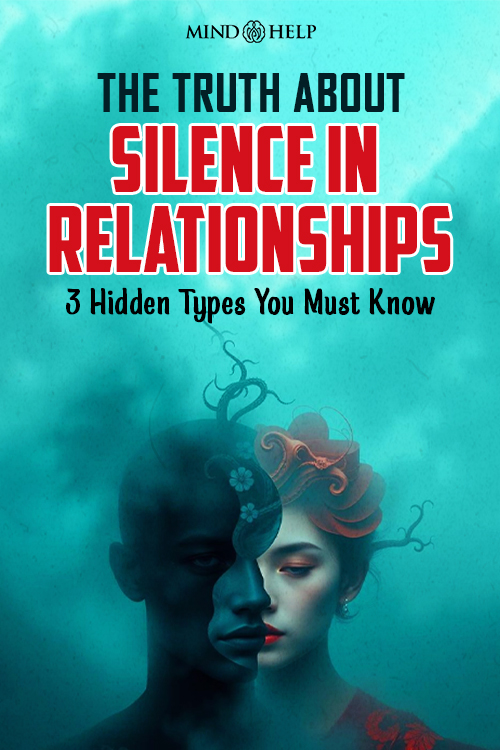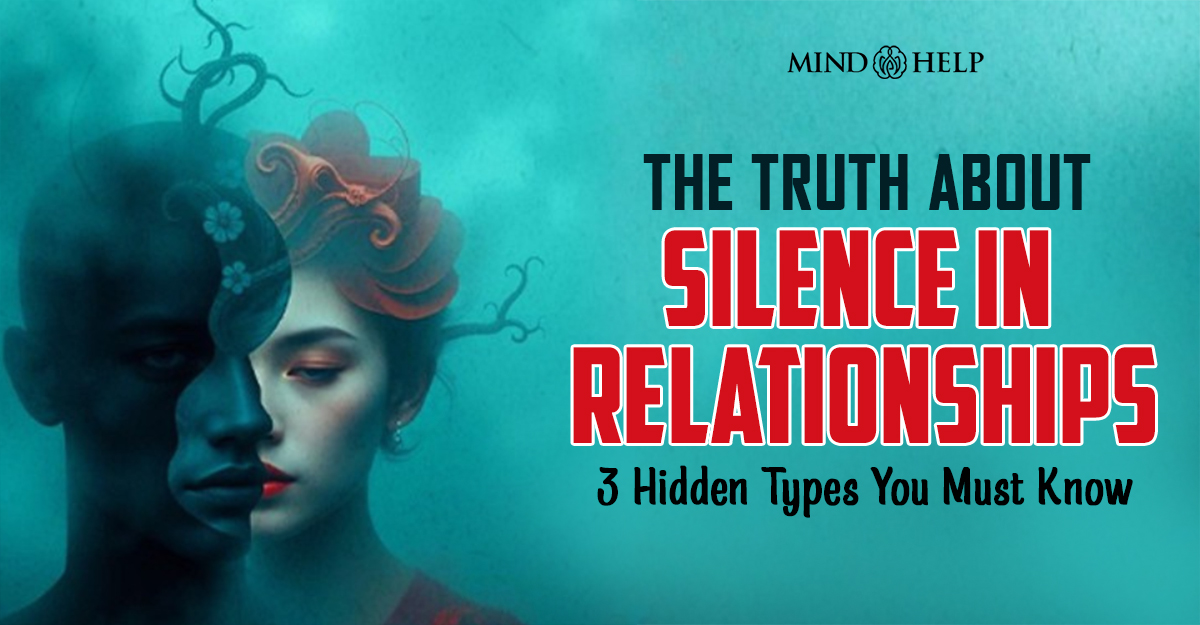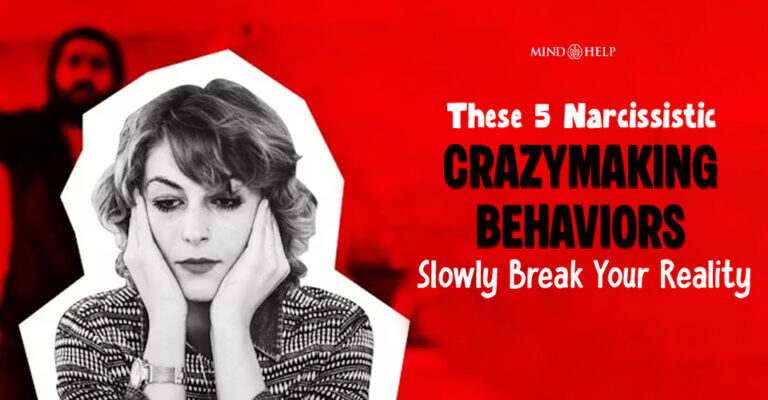Silence can be paradoxical. Sometimes it feels comforting, other times it hides fear, and occasionally it masks pain we’re too afraid to voice. Silence in relationships can be peaceful, protective, or quietly destructive, depending on its nature.
The key isn’t just noticing the silence—it’s understanding why it’s there. On the surface, all quiet moments might seem similar, but the emotional reality behind them can be very different.
Sometimes, silence is a refuge.
Sometimes, silence is a shield.
And sometimes, silence is a silent cry for help.
Let’s break down the three main types of silence in relationships, what they mean, and how they impact your emotional well-being.
3 Types of Silence In Relationships
Here are the 3 unspoken forms of silence in relationships for a better understanding of your connection:
1. Comfortable Silence: When Quiet Feels Natural
Ever sat with someone and felt no pressure to fill the space with words? That’s comfortable silence. It’s effortless, calm, and deeply connecting.
Maybe you’re reading your own books side by side, watching the clouds, or driving together with soft music in the background. In these moments, the presence of the other person matters more than the conversation itself.
This kind of silence in relationships is a sign of emotional safety. You feel connected, calm, and secure. True, chemistry and shared passion are exciting, but comfortable silence reveals long-term compatibility.
Remember, this type of silence only works when there’s mutual emotional understanding. If you feel unseen or unheard, even the quietest moments can feel hollow. So instead of asking, “Can we sit in silence?” ask, “Does this silence feel warm or empty?”
Read: 7 Research-Backed Signs You’ve Found a ‘Together Forever’ Kind Of Love
2. Avoidant Silence: When Quiet Replaces Connection
Then there’s silence that isn’t comforting at all. This is avoidant silence, the tense quiet that fills a room when something important needs to be said, but no one speaks up.
Often rooted in communication issues in relationships, avoidant silence stems from fear or uncertainty. You postpone conversations to “keep the peace,” but the relationship slowly suffers. Needs go unspoken, resentment grows, and emotional exhaustion sets in.
The danger? We sometimes mistake silence for harmony, believing a lack of conflict equals a healthy bond. But avoidant silence is the opposite of peace—it’s a subtle erosion of trust and intimacy.
3. Punishing Silence: When Quiet Becomes a Weapon
Finally, there’s silence used intentionally to hurt or control. Often called the silent treatment, this is one of the biggest red flags in a relationship. Unlike comfortable or avoidant silence, punishing silence is manipulative.
Partners who use this tactic deliberately withhold attention, affection, or communication to make you feel guilty or anxious. It’s emotional leverage, not space. Phrases like, “Figure out what you did wrong” or “You don’t deserve my voice” are common.
This kind of silence chips away at your self-worth and turns love into a tool for punishment. If silence is being wielded to dominate or control, it’s not a communication issue—it’s emotional abuse.
How to Handle Unhealthy Silence in Relationships?
Silence itself isn’t the problem—it’s the intent behind it. Recognizing the type of silence is the first step toward healthier communication.
i. If it’s Avoidant Silence:
- Approach the conversation calmly.
- Create a safe space to express feelings.
- Start with simple honesty: “I don’t know how to say this, but I’m trying.”
Over time, curiosity and patience can bridge communication gaps.
ii. If it’s Punishing Silence:
- Identify it as manipulation, not just a communication issue.
- Set clear boundaries: “Taking space is fine, but ignoring me to punish me isn’t.”
Recognising these red flags in a relationship protects your mental well-being and self-respect.
Read: 6 Overlooked Forms of Betrayal in Relationships You Never Saw Coming
Final Thoughts: Listening to Silence
The meaning behind silence in relationships matters more than the silence itself. Unhealthy silence becomes destructive when it replaces connection and accountability.
But when silence exists naturally, with mutual understanding, it becomes one of the most beautiful expressions of love. Next time you notice quiet in your relationship, ask yourself: “Is this silence a bridge or a wall?”
Frequently Asked Questions (FAQs)
How to interpret silence in relationships?
Silence in relationships can mean comfort, disconnection, or emotional withdrawal. When silence feels peaceful, it signals safety and understanding. If it feels heavy or tense, it may reflect unresolved issues or emotional distance. Notice the tone behind the quiet. Does it feel like shared calm, a protective shield, or a silent cry for help? The meaning lies in the intention, not the absence of words.
Why is silence important in relationships?
Silence in relationships is important because it fosters understanding, trust, and emotional intimacy. It allows space for reflection, empathy, and nonverbal connection. Comfortable silence shows that partners feel safe together without needing constant words, while giving room to process thoughts and emotions, strengthening the bond beyond conversation.
Is it normal to have silence in a relationship?
Yes, silence in a relationship can be completely normal. Comfortable silence often reflects trust, emotional safety, and deep connection. However, constant tense or avoidant silence may signal unresolved issues or emotional distance. What matters isn’t the quiet itself, but whether it feels peaceful or painful. Healthy silence connects; unhealthy silence disconnects.








